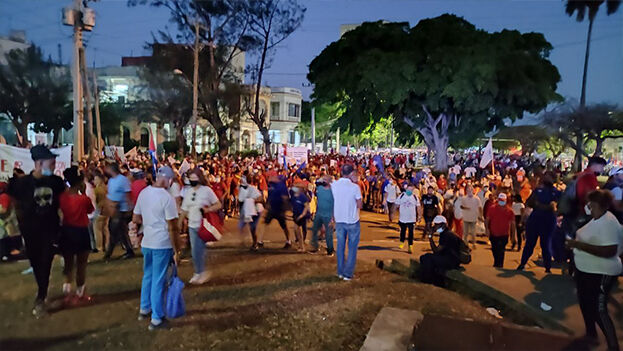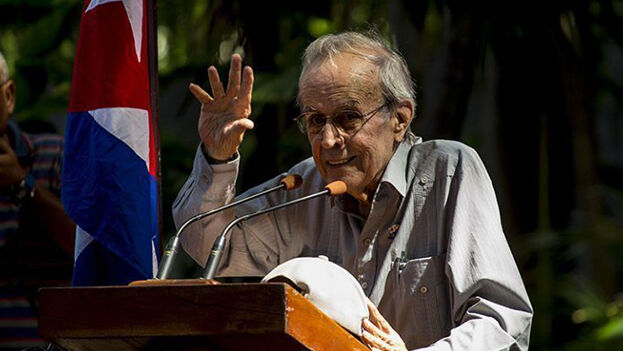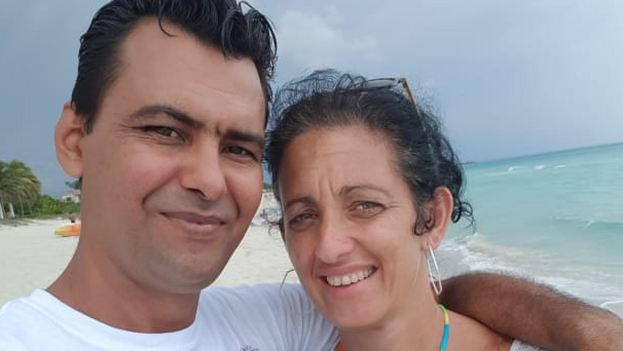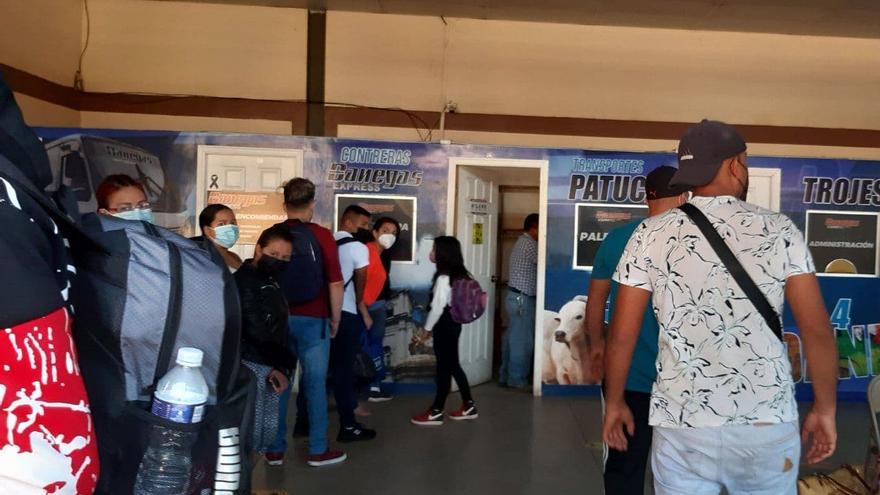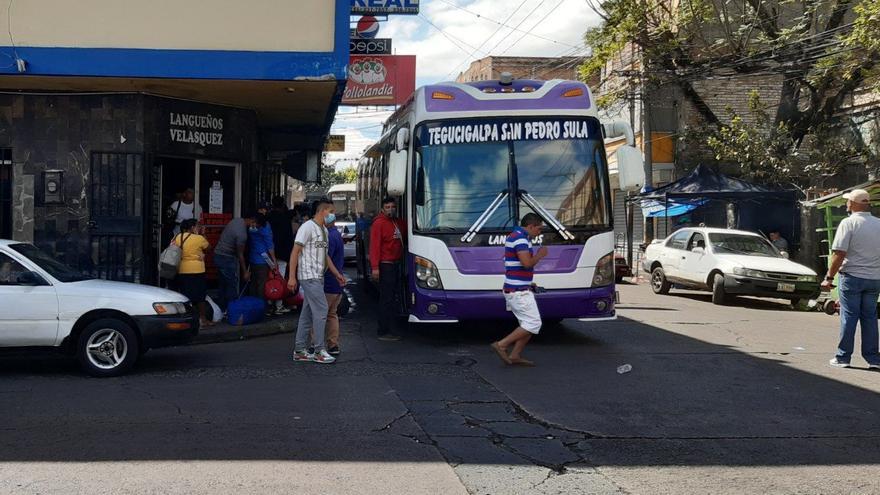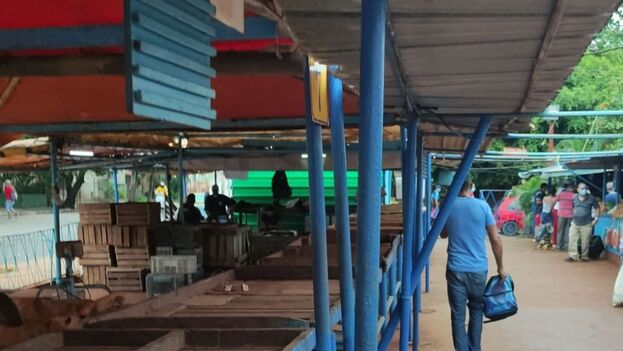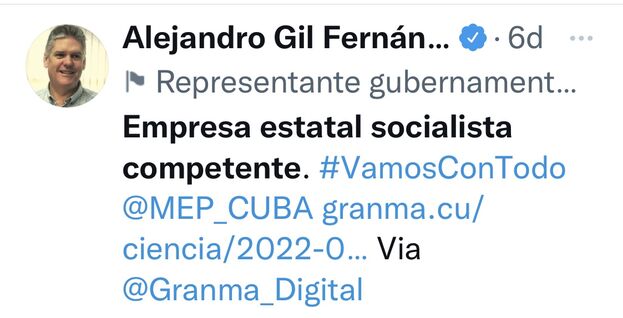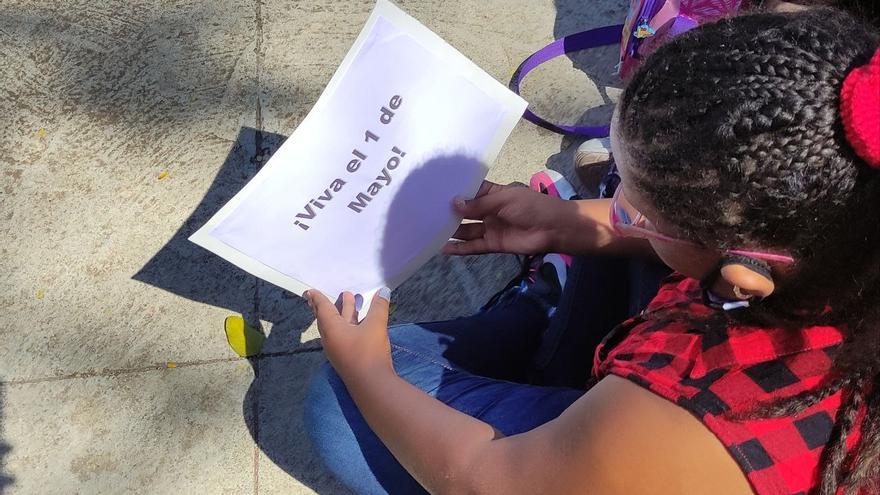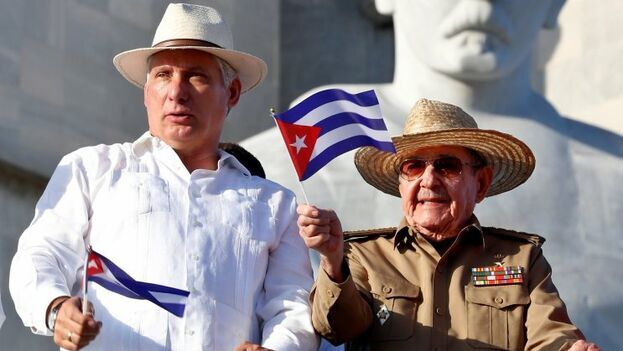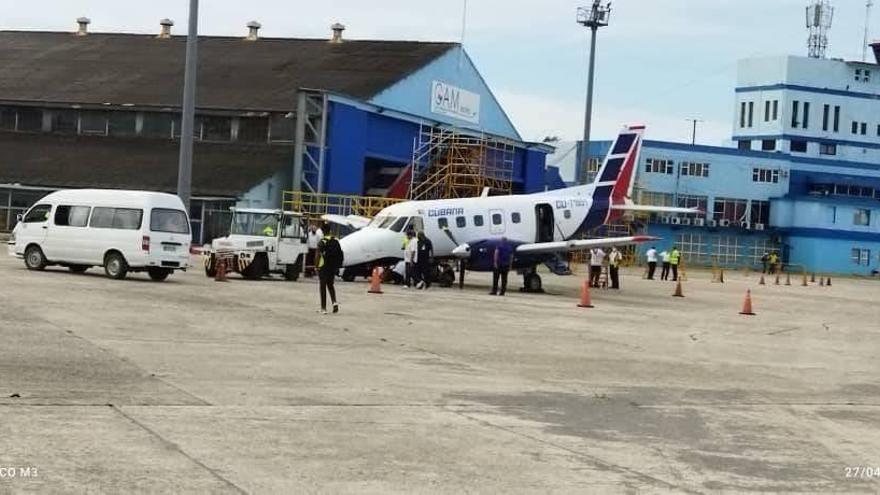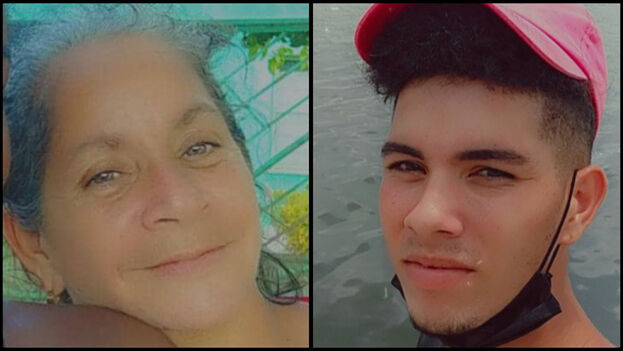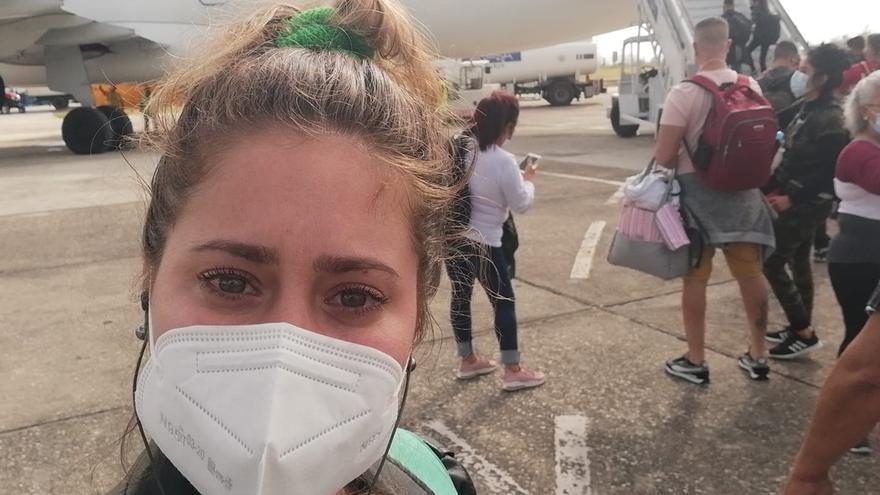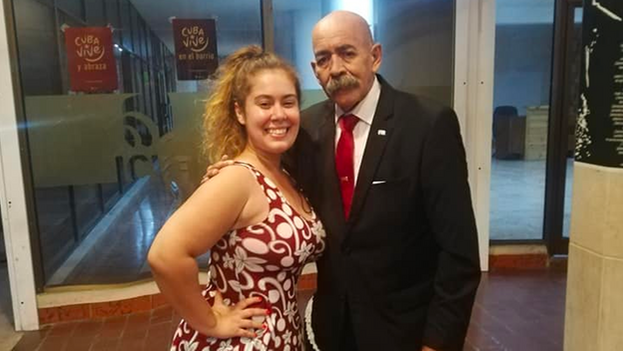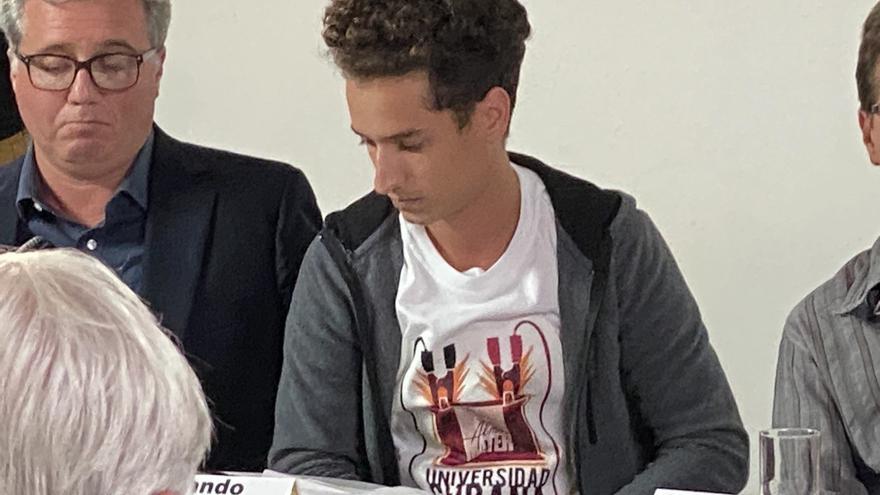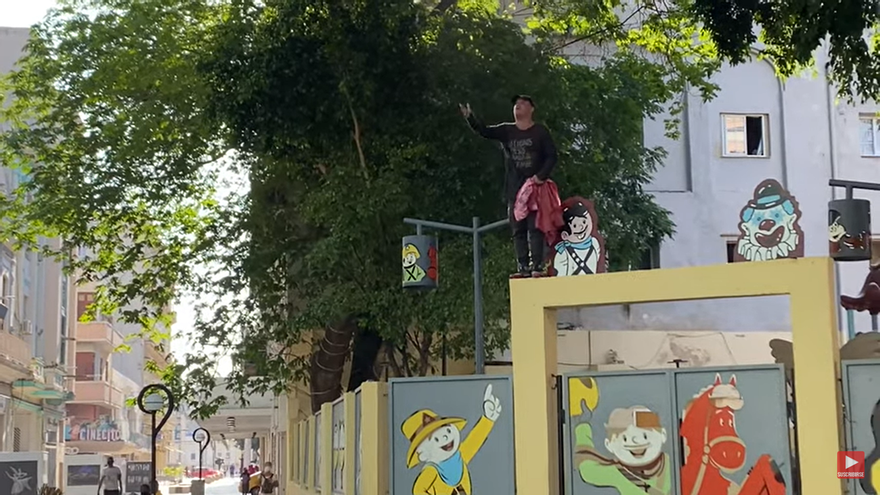Locked up in the Jovenes de Occidente prison along with others who protested in the same neighborhood of the municipality of Arroyo Naranjo, Carvajal, 19, suffers from a deep depression. His state of mind is the result not only of the disproportion of the sentence but also of the disappointment of being treated as a dangerous criminal.
Marilyn Cabrera, the young man’s mother, tries to lift his spirits every time she visits him in prison, but the possibility of spending two decades behind bars has sunk Carvajal emotionally. The boy who, until a few months ago, sold plastic cups to support his family, now counts each day of confinement.
“I had been in my house for several days, convalescing, because I had just had an operation. I heard that people were commenting on the protest, but I did not know that Orlando had been there. I found out because they told me that it was on the news, in a video filmed that day. My son was seen recording with his phone and then he would crouch down.”
“He didn’t want to tell me that he had been there, I found out from the neighbors. So I asked him and that’s when he began to tell me that he had gone to look for bread and saw people demonstrating. He got up and then they started throwing stones at them from the other side, so he bent down to pick up a stone to defend himself.” continue reading
In the sentence they insist that Carvajal lit the fuse of a Molotov cocktail that was thrown during the protests that summer Monday. The document says he is seen on video just as he sets fire to a piece of cloth protruding from the bottle and then launches another.
Cabrera explains the images that were shown in court: “In the video he appears as if he was already leaving the demonstration and at that moment another young man approaches him and asks for a matchbox, he takes out his and lights it, then the young man puts the bottle to light the fuse. Just that and they have sentenced him to 20 years.”
“We appealed. The trial was very intense and lasted three days. At one point, the mothers who were there were surrounded by guards and we couldn’t even greet our children. They arrived handcuffed hands and feet.” The image of the chained young man is something that the mother cannot get out of her mind.
“My son had never had a problem and seeing him with the chains on was very hard for me. I still have the prosecutor’s words tattooed on my mind, who made it clear that he was not going to take into account their age or whether they had prior criminal charges, that for having ‘betrayed the country’ he asked for all those years of sentence.”
“The Prosecutor’s Office initially asked for 15 years in prison for my son and in the end the sentence was increased to 20. First they accused him of public disorder and attack, but during the process they added the crime of sedition,” adds the mother. “He was in the first trial that was held against the boys from La Güinera and that was the hardest, as they intended the trial to set an example.”
In the sentence handed down by the People’s Court of Havana, to which 14ymedio had access, it reads that the defendants sought to “alter the socialist social order enshrined in the Constitution.” They also blamed them for hurling insults at Miguel Díaz-Canel “in a derogatory tone, all of which responded to the counterrevolutionary action models designed by the enemies of the socialist system.”
But that same system they were shouting against barely paved the way for Carvajal’s life. “He couldn’t finish studying because we had moved from the Isle of Youth to Havana, that is, we had returned to where I was born and we had many difficulties to be able to change the address and have an identity card from here. So my son couldn’t rejoin classes.”
Carvajal is self-employed. “He would go out with two other boys from the neighborhood to sell plastic cups in order to survive because we didn’t have the right to a ration book either to be able to buy the little that comes to the store. With what he earned he supported his sister and me, because I I’m sick.”
As a mother, she says that she had “a lot of work” since he was born: “Everything was a struggle and it was difficult for me to even buy shoes for him. In the end, when I had my second daughter, I moved with her father to Isle of Youth. So Orlando was growing up without being able to achieve a lot of the things that he needed.”
“When I arrived in Havana, it was very difficult for my son to clothe himself because he saw how other boys around him could buy a backpack or certain clothes,” she laments. “All those difficulties were destroying him emotionally but he avoided worrying me with those things, although I realized it.”
La Güinera is a very poor neighborhood. “You live with great difficulty, even the supply to the stores is worse than in other neighborhoods of Havana. Here the products arrive at the butcher shop after they arrived in other municipalities. We are the last. This neighborhood is poor and conflictive, here most young people have not been able to continue their studies.”
The mother explains the reasons for this situation: “It’s not because education isn’t free, which it is, but because they have a lot of trouble getting the things they need to go to school, so most of them I know haven’t finished secondary school, much less pre-university.
The day he learned of his 20-year sentence, Carvajal was put in a punishment cell “because he had allegedly attempted to kill himself,” explains his mother, but when she went to see him, she took his hands and begged him to help: “Mom, Lieutenant Rubén hit me because I was in pain and I couldn’t stand and I asked for medical help,” said the boy.
“I went to talk to the officer in the prison but they wouldn’t let me, so I went to the Provincial Department of Prisons at 15th and K to file a complaint. No one would help me and I got desperate and through a journalist from the Cibercuba portal I uploaded a complaint about the mistreatment of which Orlando had been a victim and the depression that this was causing him.”
The reprimand was not long in coming: “As a result of that, one day, leaving a visit to my son, the head of the prison approached me and told me not to try to upload more complaints to social networks because that only harmed my young guy.”
“Sometimes I come to the visit and see him sad. I try to cheer him up but he tells me that the only thing he thinks about is the 20 years in prison to which he is sentenced.” His mother always answers the same: “Papi, you’re not going to have to serve that time in jail.”
But although she is strong before him, the mother admits that “it is too much pain to see him like that in that situation.” She defines the current state of Carvajal with a scathing phrase: “He is mentally destroyed.” Health problems also accumulate. “He suffers from a six-centimeter cyst in his kidney and was only treated after he made numerous complaints.”
“I have hope that he will get out of there soon, but he doesn’t. Every time we talk about it, he tells me: ‘don’t believe what these people tell you.’ The disappointment he has suffered is very great because he is a boy from his home, with no record and who never had a problem. Suddenly he finds himself sentenced to 20 years in prison, that is very disappointing for him and also for me.”
And she stresses: “I think that young people should not be punished for these things but talk to them and, above all, help them. Not what they have done to them, never what they have done to them.”
____________
COLLABORATE WITH OUR WORK: The 14ymedio team is committed to practicing serious journalism that reflects Cuba’s reality in all its depth. Thank you for joining us on this long journey. We invite you to continue supporting us by becoming a member of 14ymedio now. Together we can continue transforming journalism in Cuba.

![]() 14ymedio, Havana, 1 May 2022 — This Sunday, a line with dozens of buses lined part of Carlos III and Rancho Boyeros avenues in Havana while the May 1 parade took place in the Plaza de la Revolución. The Government has paid special attention to this event, after its having been suspended for two years due to the pandemic, and the first parade to take place after the popular protests last July.
14ymedio, Havana, 1 May 2022 — This Sunday, a line with dozens of buses lined part of Carlos III and Rancho Boyeros avenues in Havana while the May 1 parade took place in the Plaza de la Revolución. The Government has paid special attention to this event, after its having been suspended for two years due to the pandemic, and the first parade to take place after the popular protests last July.